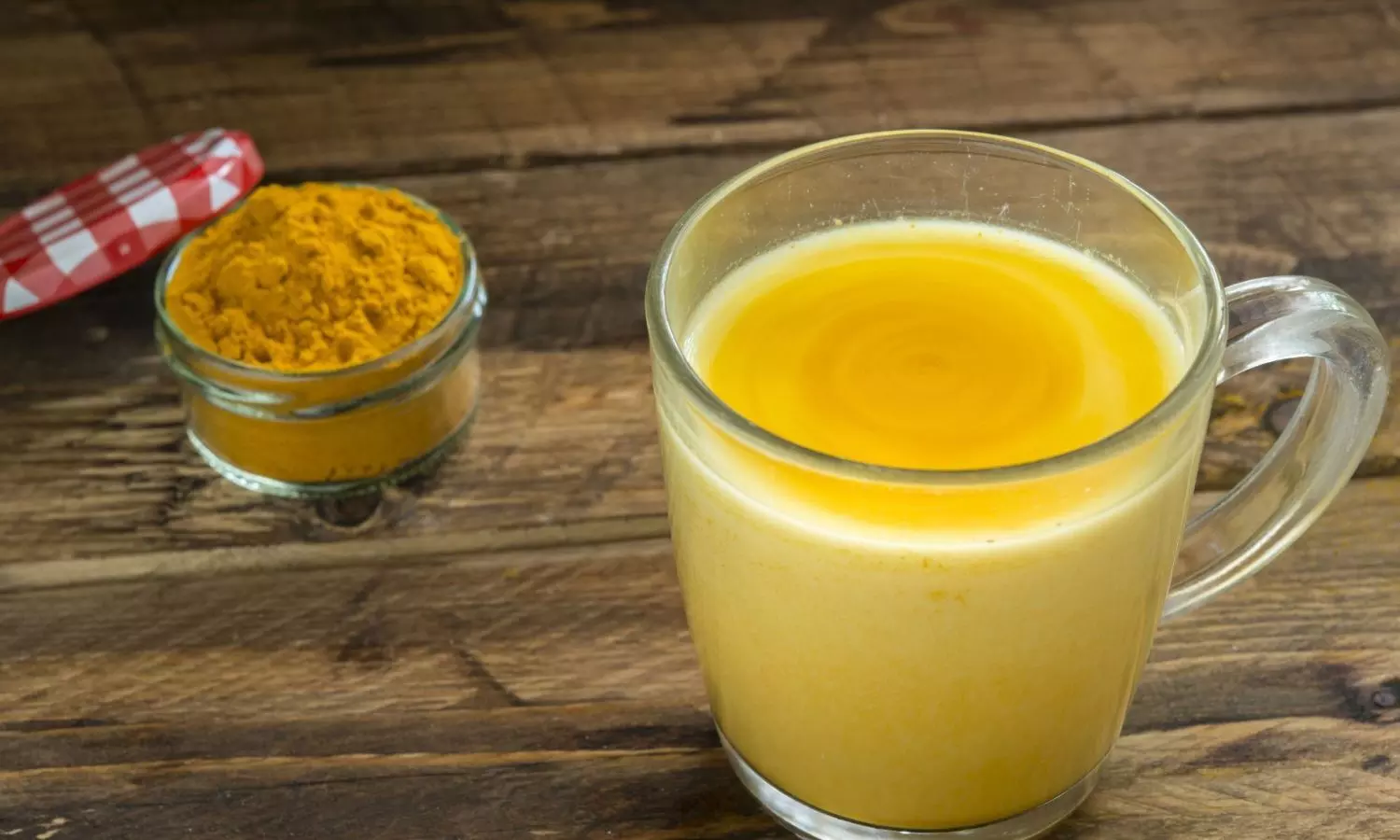Haldi Milk Vs Turmeric Water - Which Is The Winner?
Learn about the health advantages and differences between haldi milk and haldi water. It will help you make an informed choice for your well-being.
image for illustrative purpose

Turmeric, revered as "haldi" in India, has been a cornerstone of traditional remedies for centuries, celebrated for its vibrant colour and numerous health benefits. Amidst the myriad ways to harness its power, the debate often arises between the efficacy of two popular options: haldi milk and haldi water.
Haldi milk, a concoction of warm milk infused with turmeric, offers a wide range of health advantages. According to G Sushma, a clinical dietitian at CARE Hospitals, Hyderabad, haldi milk offers anti-inflammatory properties attributed to curcumin, a compound abundant in turmeric.
Regular consumption of haldi milk may alleviate inflammation-related concerns such as arthritis and joint pain. Additionally, turmeric's rich antioxidant content strengthens immunity, aiding the body in combating infections and illnesses. The beverage also aids digestion by stimulating bile production, consequently easing digestive discomforts like bloating and indigestion.
Furthermore, the comforting warmth of haldi milk has a calming effect, promoting relaxation and enhancing sleep quality. Some studies even suggest that curcumin may possess anti-cancer properties, contributing to potential cancer prevention.
However, haldi milk may not be suitable for everyone. Individuals with gallbladder issues should exercise caution as turmeric's bile-stimulating effects may exacerbate symptoms. Likewise, those taking blood-thinning medications should seek medical advice before incorporating haldi milk into their diet due to its natural blood-thinning properties.
In contrast, haldi water, a simple blend of water and turmeric powder, offers its own array of benefits rooted in Ayurveda and traditional Indian medicine. Sushma highlights its detoxifying properties, believed to cleanse the liver and enhance overall detoxification processes in the body.
Additionally, turmeric's potential role in weight management is attributed to its ability to regulate metabolism and reduce inflammation. This makes haldi water an attractive option for those aiming to shed extra pounds. Its anti-inflammatory and antioxidant properties also contribute to promoting clear and glowing skin. Similar to haldi milk, haldi water aids digestion by stimulating bile production and reducing inflammation in the digestive tract.
However, individuals with a history of kidney stones or pregnant women should approach haldi water with caution due to turmeric's oxalate content and potential uterine-stimulating effects, respectively.
Ultimately, the choice between haldi milk and haldi water depends on individual preferences and health objectives. Haldi milk offers a comforting bedtime beverage ideal for addressing inflammation, boosting immunity, or improving sleep quality. Conversely, haldi water provides a lighter option suitable for detoxification, weight management, and skin health improvement. Regardless of the choice, moderation is crucial. The recommended servings range from 1/2 to 1 teaspoon of turmeric powder per cup of milk or water.
Both haldi milk and haldi water offer distinctive health benefits and cater to diverse needs and preferences. It's essential to select the option that aligns with personal health goals while ensuring moderation in consumption for optimal well-being.

